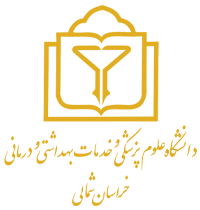Addiction and Behavioral Sciences Research Center
Head:
Dr. Hassan Saadati
History
The Addiction and Behavioral Sciences Research Center officially began its activities on June 21, 2012. It received its provisional approval on December 18, 2016, following the decision made in the 257th session of the Council for the Development of Medical Universities under the Ministry of Health and Medical Education of Iran.
Mission
The center is committed to conducting basic and applied research in the field of addiction and behavioral sciences, aligned with national research priorities. The mission is to generate effective knowledge and promote scientific advancement aimed at improving the quality of prevention, treatment, and rehabilitation services for individuals affected by substance use.
Main Objectives
Generating and promoting dynamic and impactful knowledge in the fields of addiction and behavioral sciences
Enhancing the quantity and quality of relevant scientific research
Empowering researchers and training specialized experts
Facilitating national and international scientific collaborations
Disseminating up-to-date scientific findings and innovations
Specific Goals
Research on harm reduction therapies, with a focus on methadone maintenance treatment
Developing and applying knowledge related to addiction prevention within substance-using families
Conducting studies on new therapeutic approaches to addiction
Educating and training researchers in addiction and behavioral sciences
Organizing educational and research workshops to enhance the capabilities of researchers, students, and faculty
Cooperating with universities, research institutes, government and non-governmental organizations
Creating opportunities for interdisciplinary and collaborative research across related fields
Vision
The center aims to become one of the leading research hubs on addiction and tobacco-related issues in the region, contributing meaningfully to health policy and social harm reduction.
One of its flagship upcoming projects is a longitudinal cohort study titled:
"Assessment of Adolescents with Parents Undergoing Maintenance Treatment with Methadone, Buprenorphine, or Opium Tincture."
This study plans to follow adolescents aged 10 to 14, whose parents are receiving maintenance therapy, for a period of 10 years. The goal is to assess the impact of different treatment types on the attitudes and potential addiction outcomes of these adolescents.
Research Priorities
Behavioral Sciences Research Center focus on addressing key mental health and addiction-related challenges with an emphasis on vulnerable populations. These include
Assessment of mental health across different populations, with a focus on vulnerable groups
Development of mental health services across the three levels of prevention (primary, secondary, tertiary)
Family-centered care approaches in mental health
Empowerment of families of patients with chronic psychiatric conditions, including implementation of home care models
Investigation into the causes, consequences, and solutions to reduce aggression and violence, including domestic and street violence (individual and group conflicts)
Evaluation of psychiatric emergencies such as suicide attempts and severe or chronic psychotic disorders
Exploring the relationship between spiritual health and mental health
Suicide and self-immolation risk analysis in the province and identifying preventive strategies
Contact Information
Phone: +98 58 3121 1427
Postal Code: 94149-74877
Email: [info@nkums.ac.ir](mailto:info@nkums.ac.ir)
Address: North Khorasan Province, Bojnurd,
Shahriar Street, After Imam Ali Hospital, Nursing Faculty,
Behavioral Sciences and Addiction Research Center

